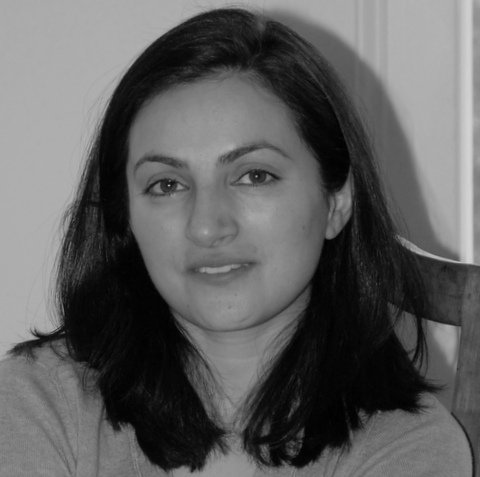By Namita Luthra, New York, NY. Â
e-mail: namitaluthra@gmail.com
Editor’s Note: Namita Luthra, a civil rights lawyer, lives in New York City with her husband Anil Shrivastava and their two children, Amartya and Jaya. She grew up in Weirton, WV, near Pittsburgh.
“Everyone deserves love, laughter, and joy in their lives. No one deserves to live in fear.†— Radha, a survivor of domestic violence.
To end violence against women. That is the simply stated but ambitious mission of Sakhi for South Asian Women, an organization founded twenty five years ago in New York City that assists survivors of domestic violence. Sakhi, meaning woman friend in Sanskrit, takes a two-pronged approach to achieving this mission:
First, it creates a safe place with a full range of culturally sensitive, language-specific information, support, services, and advocacy for South Asian women facing abuse in their lives.
Secondly, it works to inform, actively engage, and mobilize the South Asian community in the movement to end violence against women forever. Though its mission is far-reaching, Sakhi works to make it a reality one woman at a time.
In 2012, Sakhi served nearly 600 women who reached out through its helpline, website, or a referral. Here is a glimpse of one life of a survivor named Radha, in her own words:
“Growing up, my home was filled with laughter, love, and joy. My parents were like normal Indian parents and expected the best from us in terms of grades, manners, and respect, but they always made us feel cherished and supported
Even on my wedding day, my mom held my hand before I walked towards the mandap and told me that she would always support my decisions and always stand by my side.
After I married, my home was filled with sadness, disrespect, and fear. My husband ruled the home like a tyrant and used his words and hands to instill fear in me. He wouldn’t allow me to see family or friends. And soon I was isolated, alone, and afraid.
Sakhi helped me move past my assumptions that I would shame my family and, society would view me poorly if I were divorced, and helped me move forward in my life. Sakhi helped me get a lawyer and held my hand in court. My mom stood by her word and held my other hand.Â
I am now happily married to a wonderful man and have two very loved children. With the support of Sakhi and my loving family, my home is filled with laughter, love, and joy once again.â€
My own involvement with Sakhi is a longstanding one. In 1996, after receiving a law degree from the University of Pittsburgh School of Law, I moved to New York City for a civil rights legal fellowship with the American Civil Liberties Union. At the same time, I began a volunteer position with Sakhi. As a volunteer, I helped survivors of violence navigate the criminal justice and civil law systems. In 2012, I joined Sakhi’s Board of Directors and now help set its development and program priorities.
At Sakhi’s helm is Tiloma Jayasinghe, its Executive Director, who has steered Sakhi in bold and new directions. In addition to strengthening its local focus, Tiloma now ensures Sakhi’s role in a national and global conversation about reframing anti-violence work.
Other vital members of the Sakhi team include Community Outreach and Domestic Violence Program Advocates and an Economic Empowerment Coordinator. This spring, Sakhi along with other South Asian women’s organizations, was present for President Obama’s signing of the reauthorization of the Violence Against Women Act. Two years ago, Sakhi hosted a summit for international and national social justice leaders to understand intersections between immigration, economic dependence, and gender violence and set forth positive goals for the movement.
This year, Sakhi celebrates its 25th Anniversary. It marks this milestone with several events during the year including a gala reception in May 2014. In past galas, Sakhi has honored dedicated supporters including film director, Mira Nair, a United Nations Special Rapporteur on Violence Against Women, and most recently this May, Ann Mukherjee, Senior Vice President of Frito Lay, who spoke compellingly about her own history of surviving violence.
Sakhi could not exist without generous support from a committed South Asian community in the New York metropolitan area. The Pittsburgh and Tri-State South Asian community can contribute to Sakhi’s vital work, too. A contribution from you, no matter how large or small, will help Sakhi achieve its mission – one woman at a time. Join our mailing list to learn more about Sakhi’s important work, receive updates about 25th Year events, or support Sakhi, by contacting Danielle Reydon through Sakhi’s website: www.sakhi.org. By supporting our work, you could take pride in helping to end violence against our fellow sakhis – Indian, Pakistani, Sri Lankan, and other South Asian women. Women like Radha. ♦

